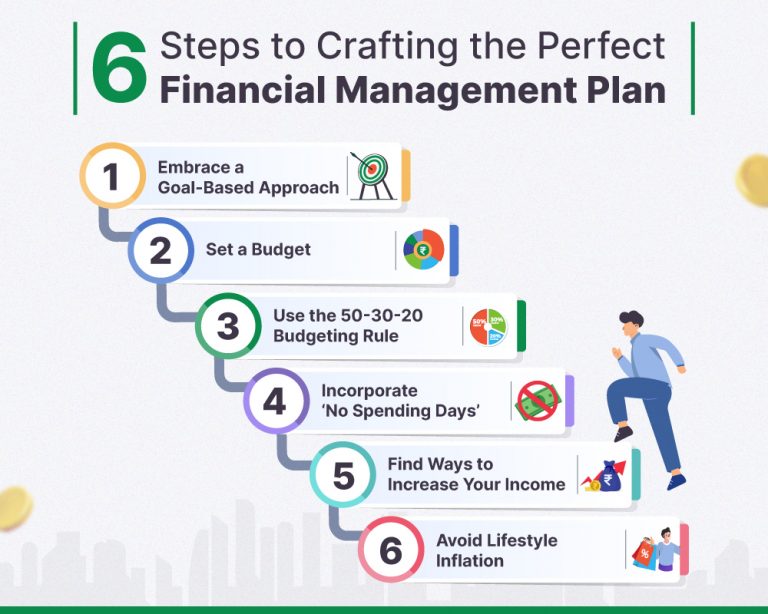Home
>
Money Management Plan
Successful financial management isn’t a ‘one-size-fits-all’ approach. However, these 6 expert-backed tips can help you get started.

A successful plan starts with a goal.
However, the caveat is that the goal must be S.M.A.R.T -
Once you have defined your goals - short-term, mid-term, and long-term, you can start doing the necessary work.
For eg. If you wish to purchase a house for your family( specific and relevant ) in 6 years (measurable and time-bound), with an average yearly increase of 20% in your income (attainable), how much would you have to set aside each month? What will your EMIs be?
Once you receive your answer, you can move around your finances to ensure this goal is met.
Additionally, the ‘10-10-10’ rule as recommended by author Suzy Welch helps determine the importance of a goal. Ask yourself ‘What are the consequences or repercussions of your decision in 10 minutes, 10 months, and 10 years.’
The absence of a budget can spoil success of your financial management. Some of the tips you can incorporate into setting the ‘perfect budget’ include -
Try to keep an emergency fund with at least 6 months’ worth of income as well. Life is unpredictable, it is always better to be prepared.
Another expert-backed way to craft an effective budget is to follow the 50/30/20 rule. As per this rule -
This rule was suggested by Senator Elizabeth Warren and Amelia Warren Tyagi in the book ‘All Your Worth: The Ultimate Lifetime Money Plan’.
While these numbers can be changed based on individual circumstances, it is a good rule of thumb to follow.
As the phrase suggests, a ‘no spending day’ is one day where you do not spend on anything unless it is urgent and necessary. Personal finance expert Michelle McGagh believes that doing so can help you control your spending and inculcate discipline.
Start by doing this at least once a fortnight.
Some ways to do this include starting a side hustle and selling off old items that you no longer use.
Find a skill or a hobby that you are interested in, train yourself in it, and find ways to monetize the same. Social media makes starting a side hustle much easier today than before.
When your income increases, it is tempting to match your lifestyle with the new income. But how about increasing your savings and investments instead?
Let your lifestyle stay just as comfortable as it is currently. Minor adjustments as needed can, of course, be considered but anything unnecessary must be traded for more investments instead.
These are just the start. Use these tips to become that much more successful at personal finance management.
What are some of your favorite money management tips? Let us know in the comments below.
Was this information useful?